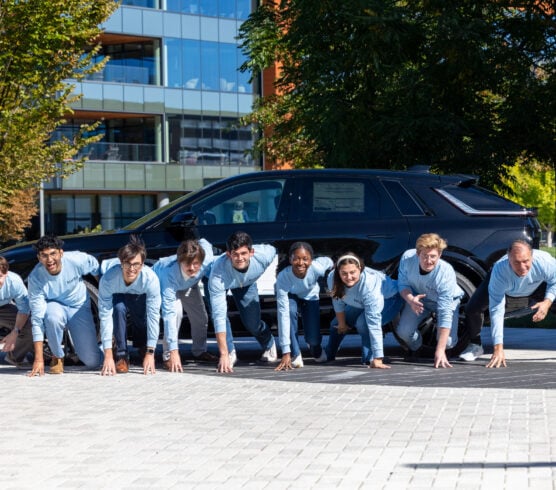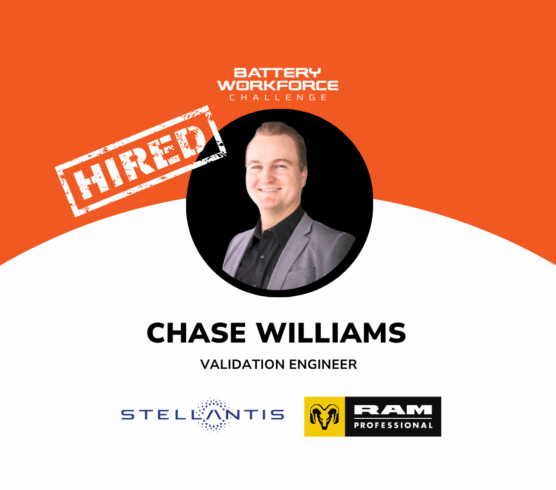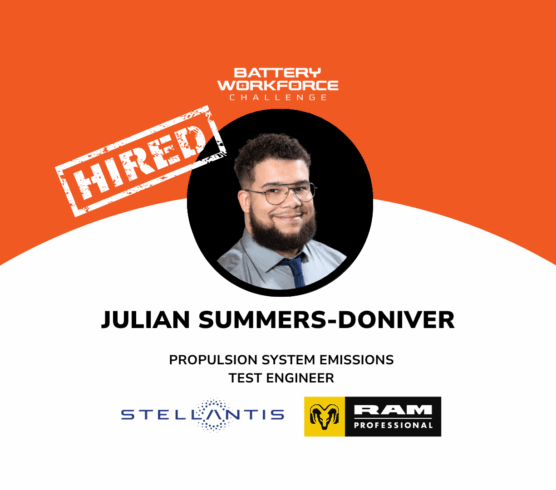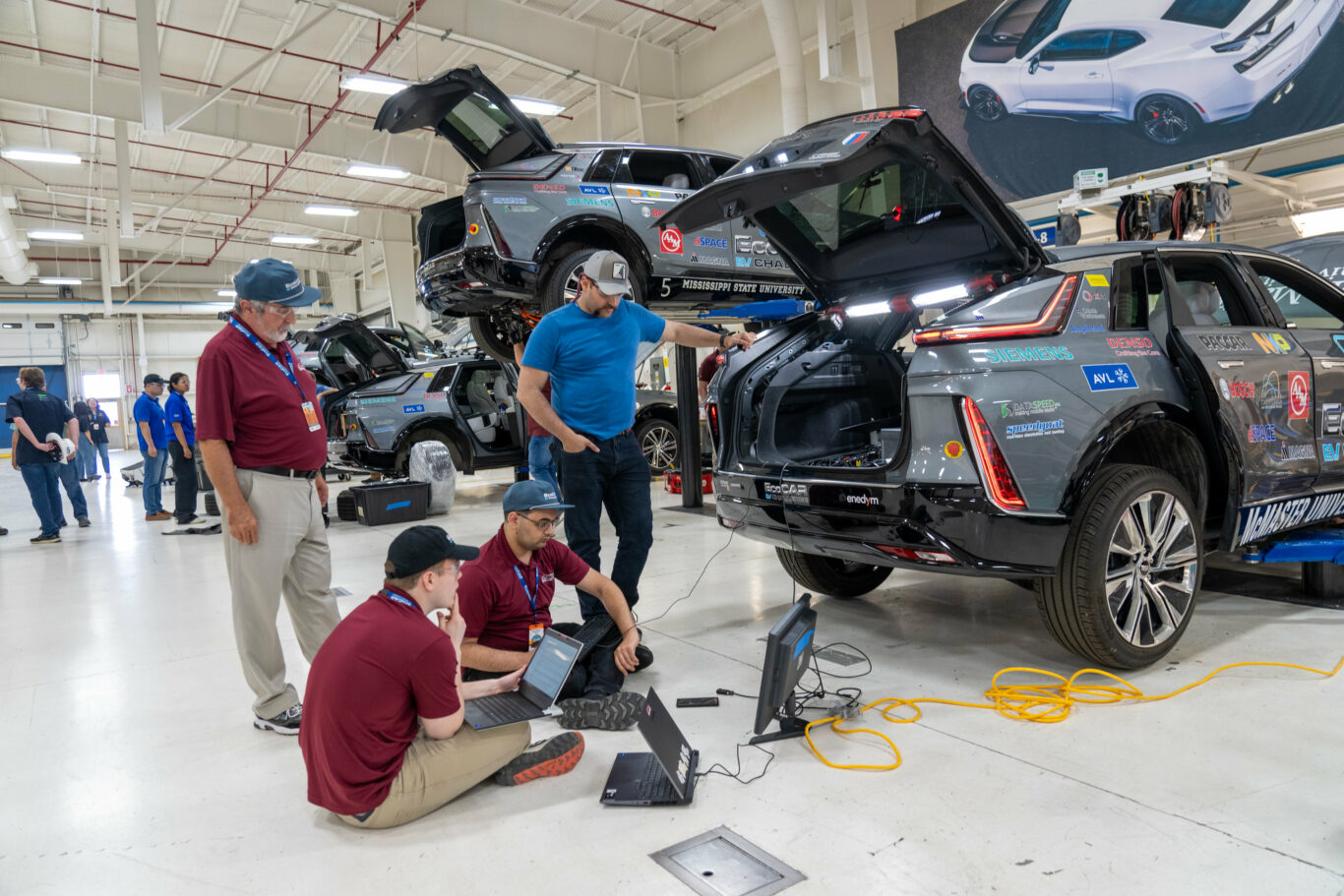
Connected and Automated Vehicles (CAVs) are revolutionizing the way we think about mobility. These vehicles, equipped with advanced technologies that enable them to communicate with their surroundings and operate autonomously, are paving the way for a smarter, more efficient future. The EcoCAR EV Challenge is a unique platform where university students work alongside industry and government partners to develop cutting-edge CAV technologies. These students aren’t just learning about the future of transportation—they’re building it.
For Year 3 of the Competition, EcoCAR teams are focused on integrating CAV technologies that enhance energy efficiency by optimizing driving patterns and leveraging Vehicle-to-Everything (V2X). This technology allows vehicles to communicate with infrastructure and other cars, creating a connected ecosystem that can reduce energy consumption and improve overall efficiency.
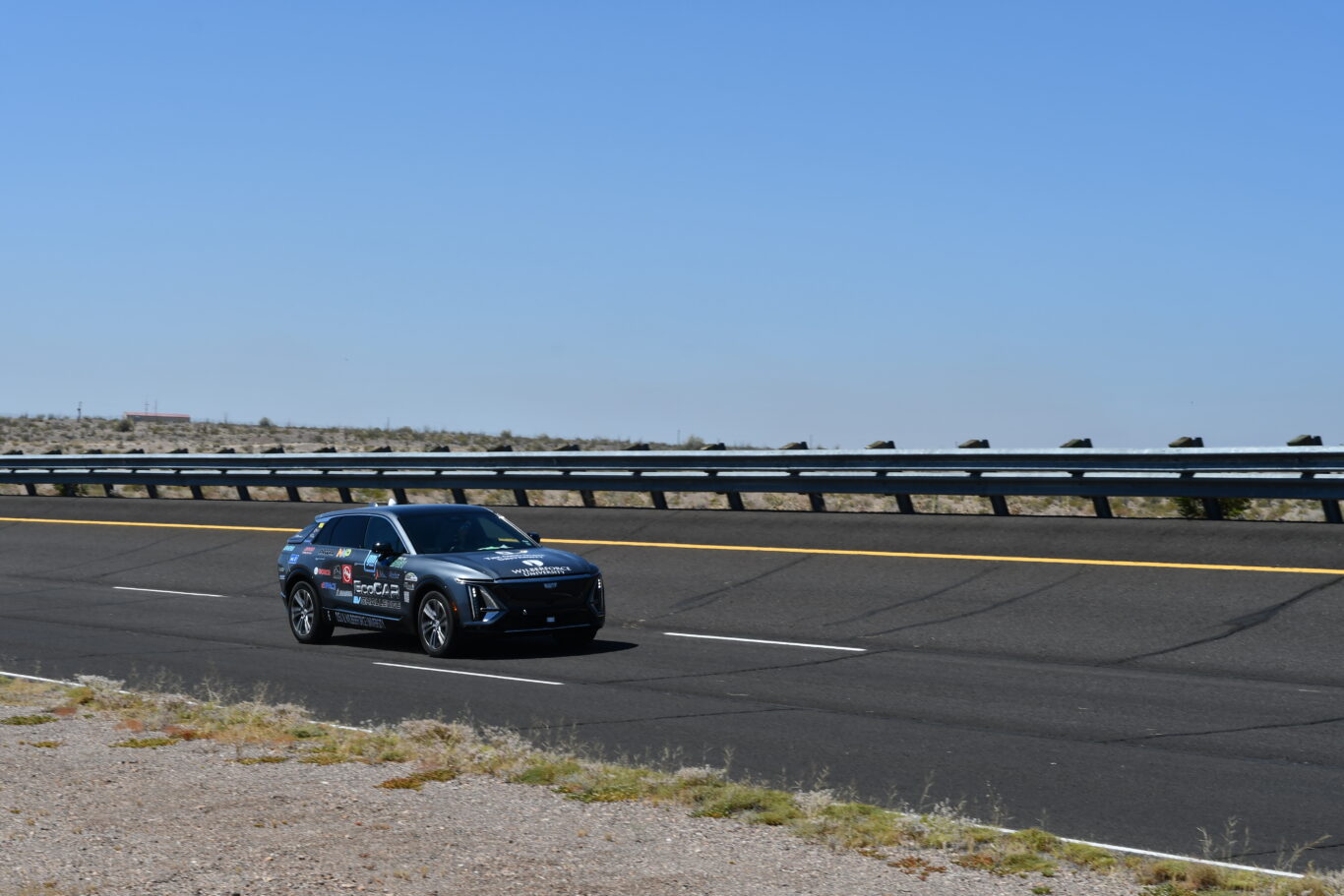
This year represents a pivotal moment for EcoCAR participants, as teams will deploy and evaluate CAV technologies on their Cadillac LYRIQs, putting their cutting-edge innovations through rigorous real-world testing. Teams will be exposed to unprecedented testing methodologies to assess the efficiency and performance of their systems. A landmark event awaits in Spring 2025, when 13 university teams will conduct a Vehicle-in-the-Loop (VIL) dynamometer test at the California Air Resources Board (CARB) headquarters to evaluate the energy consumption of their Adaptive Cruise Control (ACC) system – which is one of the largest scale VIL testing event in industry.
Achieving this milestone requires an immense collaborative effort among sponsors, Argonne researchers, and EcoCAR participants to develop and implement these advanced technologies. Sponsors such as MathWorks, dSPACE, and NXP play a critical role by providing essential hardware, software, and expertise. From software platforms like MATLAB and Simulink to sophisticated hardware like dSPACE’s AUTERA, these resources enable vehicles to communicate autonomously and operate with precision.
In preparation for Year 3 testing, a dedicated team of Argonne researchers and organizers from GM and MathWorks will participate in a series of dry-run events at GM’s Milford and Yuma Proving Grounds, as well as CARB. Argonne researchers Nick Goberville, Priyash Misra, and Kayla Hamilton are also collaborating with key transportation and research groups at Argonne to design drive scenarios and develop simulation tests that will be integral to the upcoming dry-run activities.
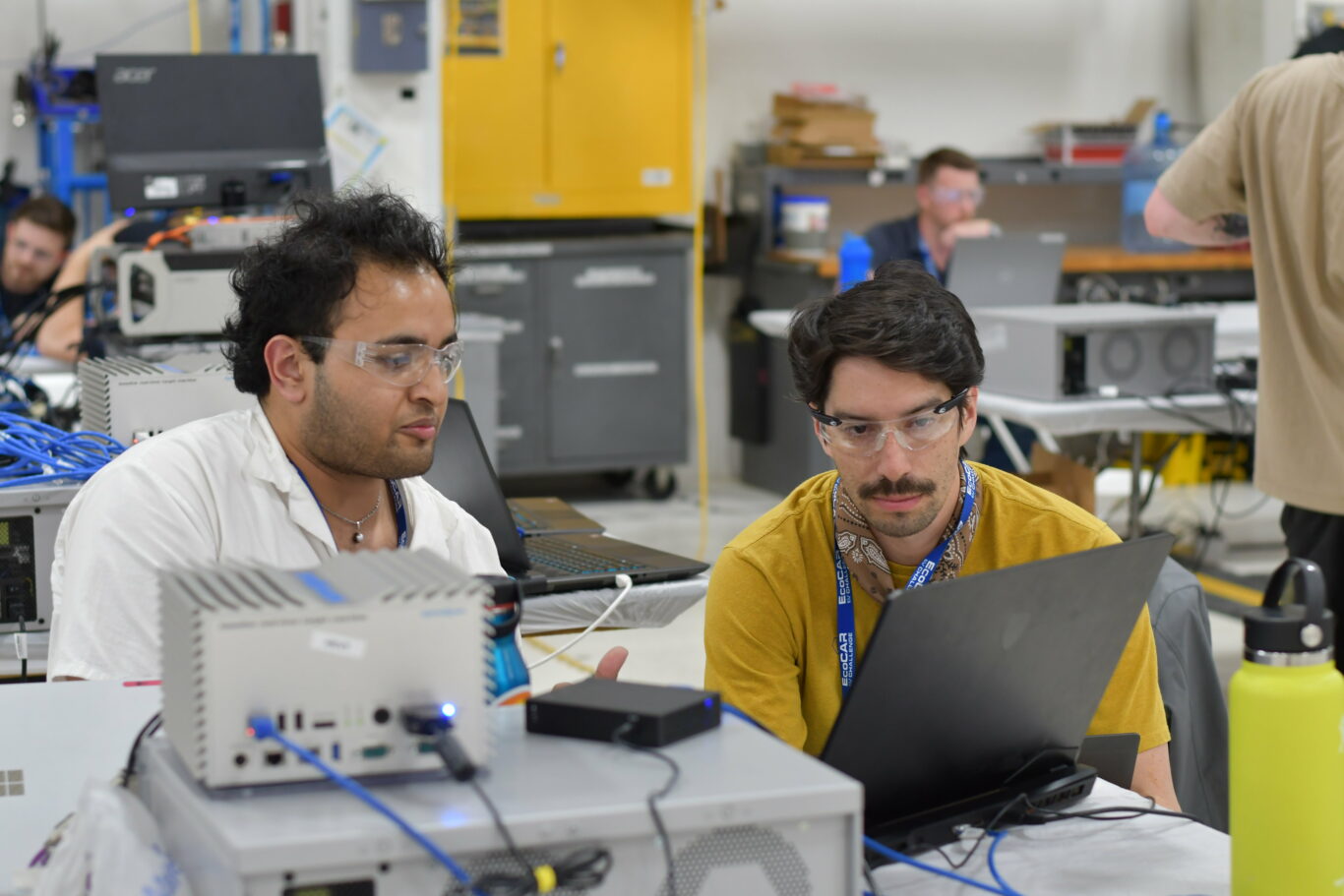
EcoCAR’s impact goes beyond the competition itself. The work being done by teams, alongside Argonne, contributes to the U.S. Department of Energy’s (DOE) broader CAV research portfolio. By integrating projects like Everything-in-the-Loop (XIL) and Cooperative Driving Automation (CDA), EcoCAR is laying the groundwork for future CAV testing methodologies.
For students, participating in the EcoCAR EV Challenge offers unparalleled opportunities. It’s more than just an educational experience—it’s a launchpad for their careers. Participants gain hands-on experience with real-world vehicle development processes, access to state-of-the-art testing facilities, and the chance to work alongside industry mentors and experts. These experiences make EcoCAR students highly desirable to companies seeking to recruit the next generation of engineers and business leaders.
The EcoCAR EV Challenge is a powerful example of how collaboration between industry, government, and academia can drive innovation in transportation. As CAV technology continues to evolve, the work being done by EcoCAR teams today will help shape the future of mobility, making it smarter, safer, and more sustainable for everyone.
